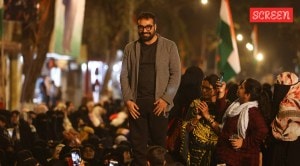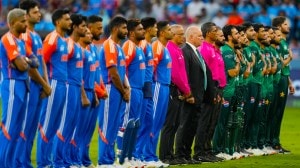Hurriyat in a hurry
In the case of Kashmir, how and when parties talk to each other seems to often be more important than what they say, or even the fact that t...

In the case of Kashmir, how and when parties talk to each other seems to often be more important than what they say, or even the fact that they talk all. The latest imbroglio over talks between the Hurriyat and Prime Minister Manmohan Singh seems to underscore this fact. For months the Hurriyat were complaining that they were shut out of the political process. When they were finally invited for talks, they gave the impression that they wanted to talk to General Musharraf first. They then backtracked and cited logistical difficulties in meeting the PM on the dates proposed.
In a way this small episode is emblematic of politics in Kashmir. It brings home three facts. First, the politics of symbolism — who talks to whom first — often dominates substance. Second, the Hurriyat is now more uncertain about what it wants from the dialogue process. The Indian state is, at the moment, less susceptible to being demonised than it was a few years ago. Hurriyat has not adjusted to this reality. Events on the ground in Kashmir, such as the return of a more robust democratic process, the revival of the economy, and lowering levels of violence have made Hurriyat’s job politically more difficult. It is struggling to define what it wants. Third, the Hurriyat is also probably more genuinely uncertain about where it stands vis-a-vis Pakistan. How enduring will be the general’s cooperation in keeping Kashmir calm? Hurriyat’s hesitations and uncertainties reflect new realities in Kashmir. Hurriyat, although it did not participate in elections, is a significant force in Kashmir. It still has a place in the political process, but it will have to be committed to participating without preconditions. It cannot give Pakistan a place as a more privileged interlocutor than India.
Indeed, the critical challenge for the peace process at this juncture is to consolidate the gains of the last few months. India has made its position very clear. There will be no consideration of any proposal to redraw territorial boundaries or re-partition Kashmir on religious lines. While not formally giving up Pakistan’s stated positions, General Musharraf will have to be mindful of this reality. India, for its part, will also have to keep the process going by convincing the general that a good deal is still at stake in keeping the peace process going. Neither side should expect any dramatic gestures; nor should they go out of the way to provoke the other. Kashmir needs a serious period of cooling off. It is in India’s interests to convince the Kashmiris that it will carry them along rather than marginalise their concerns. For this reason, it should engage with the Hurriyat. But the Hurriyat should also now contemplate the possibility of replacing the politics of symbolism with political reasonableness.
Photos




- 01
- 02
- 03
- 04
- 05



























